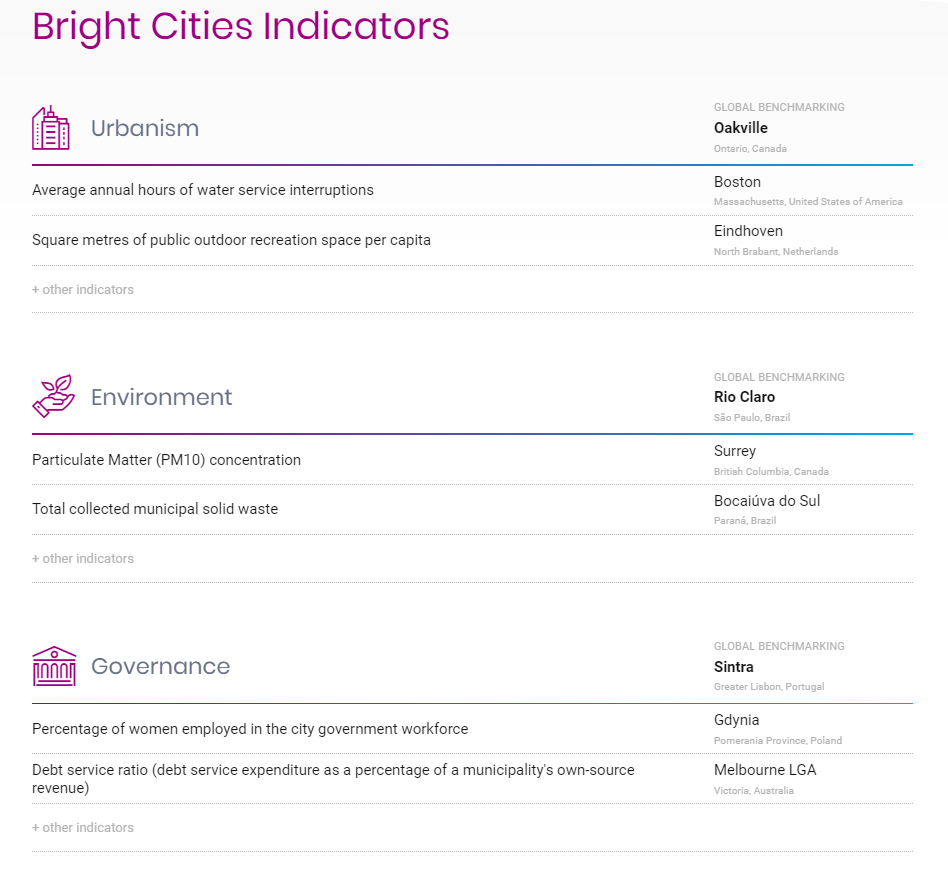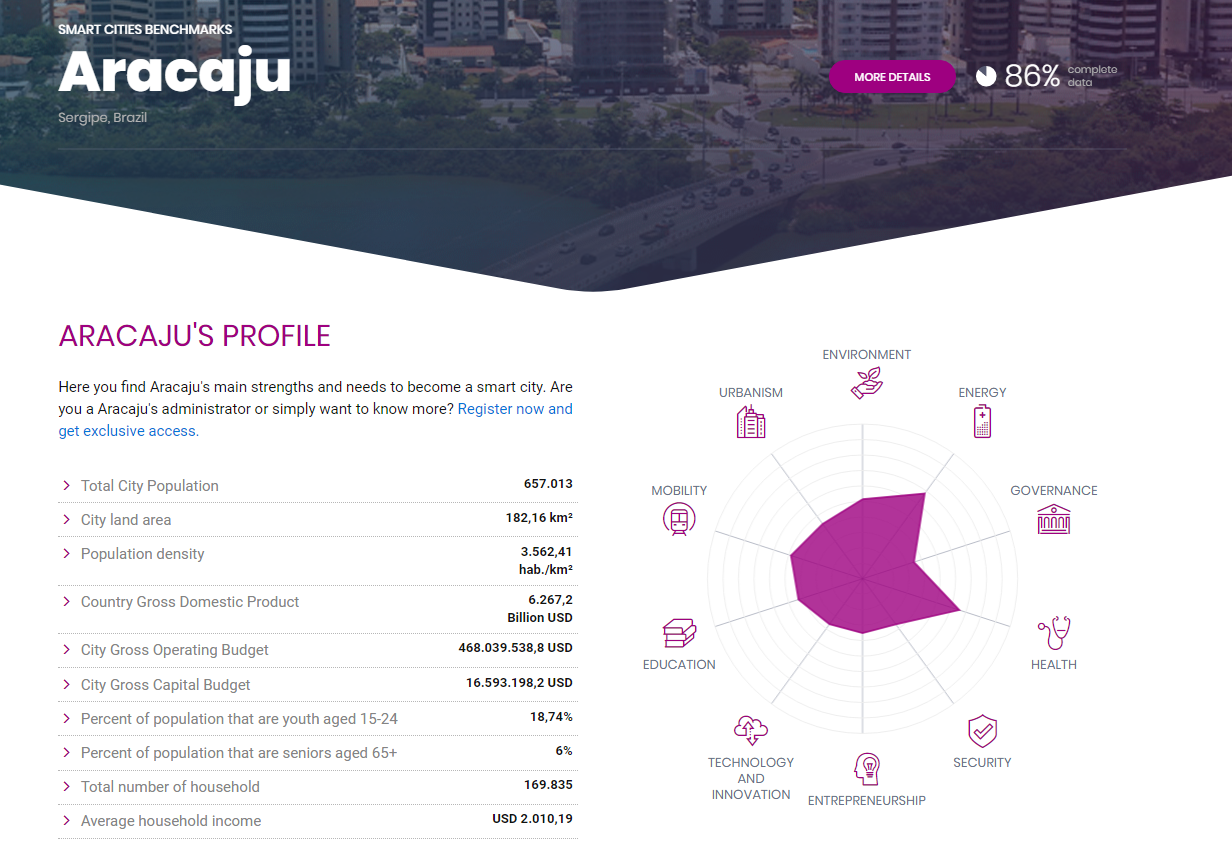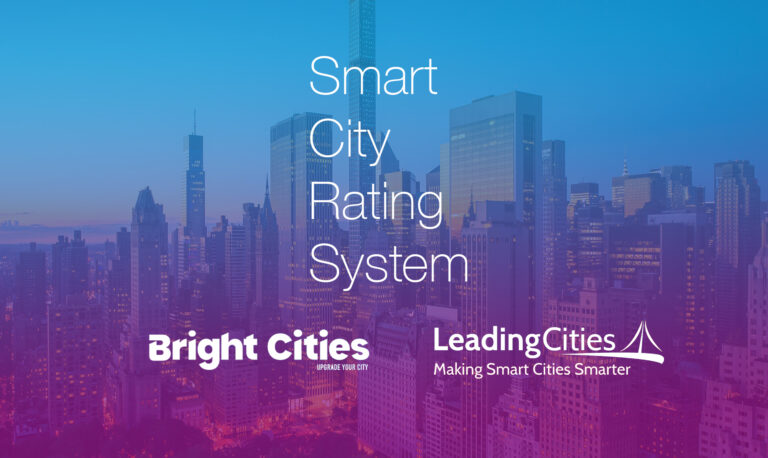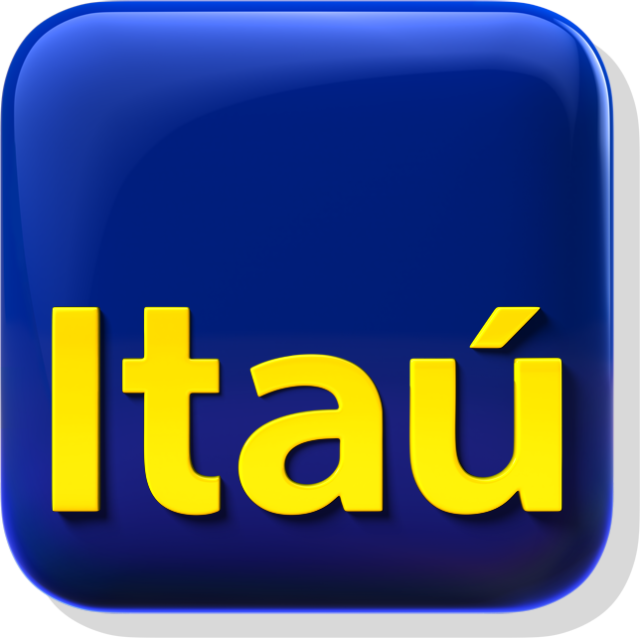The collection and analysis of urban data are great allies of cities and fundamental tools to assess the quality of public services over the years
Do you know what is a technical standard? We can say that the term refers to a very specific type of document, where indications, characteristics and guidelines are reuniteded and directed to products, producers or services to guarantee a certain level of quality. Present in the most different disciplines of technical knowledge, these technical standards operate in the economy, industry, agriculture, politics, environment and, of course, in our own cities.
After all, if the mission is to ensure quality, nothing more appropriate than starting with the place where we live! As a support tool that improves the process of building a smart city, Bright Cities platform develops a complete diagnosis of a municipality based on 160 global indicators, included in ISO technical standards or aligned with the Sustainable Development Goals of UN. From the data collected with these indicators we are able to evaluate the results in ten areas of urban management, such as Health, Governance, Education and Urbanism, and then listing which services should be improved.
To understand more about our methodology and how the technical standarts can contribute to the diagnosis of cities, we spoke with Alex Abiko, teacher of the Polytechnic School (EP-USP) and coordinator of ABNT / CEE-268 – Special Study Commission for Sustainable Cities and Communities during a LIVE on our Instagram. Together, we discussed how important it is for cities and public managers to monitor their urban indicators. Check the main subjects that were discussed during our chat below:
What are technical standards? They are documents created by international organizations and based on the contributions of different specialists, providing rules, guidelines and standardized indicators so that activities, products and services can obtain quality.
What are technical standarts for? Working as guides, the technical standards aim to establish quality standards based on consensus, encouraging innovation and providing solutions to the greatest global challenges. Thus, even though they are not mandatory, they are important guidelines for companies, services, producers and countries to achieve good results!
Why the the technical standards are so important? Creating public policies based on data collection and analysis is the most efficient and safest way to contribute to our quality of life! This is because, among their many benefits, we can mention:
- Reliability: technical and scientific knowledge is our best option to collect and safely analyze information about cities. Not only the technical standards have specific indicators to guide and measure the performance of urban services, but they also include instructions on how this data should be collected. Bright Cities uses only official data sources, such as IBGE and DATASUS;
- Standardization: because they establishing criteria and guidelines common to all its users, the technical standards make the indicators and the data obtained comparable between themselves and between different cities. Thus, Brazilian municipalities that use ISO standards are associated with an international and pioneer system, recognized and used by the whole world. Bright Cities compares data from more than 30,000 cities in Brazil and the world;
- Comparison: because they are standardized, the data obtained in Brazilian cities can be analyzed in relation to any other city in the world, allowing their public managers to learn from policies that have already proven to be efficient elsewhere. Bright Cities maps more than 1,000 solutions and best practices in the world, in a free of charge solution bank;
- Diagnosis: the standards and their indicators help public managers to understand what parameters matter and what should be the urban priorities to achieve a good quality of life. From the data collected it is possible to assess the situation of a city in areas such as the environment, health and education, in order to map strengths and weaknesses and also guide our leaders to adopt more direct, quick and smart strategies. Want to know the diagnosis of your city? Search for its name on our platform’s home;
- Monitoring: the constant analysis of the indicators allows managers to monitor the results in the long term, showing the progress of each indicator and measuring the impact of each of the solutions adopted over time;
- Investment: promoting the collection and analysis of data requires funding and organization by the public government. Thus, adopting technical standards is the first step to encourage the research and the scientific analysis of our cities;
- Agenda 2030: ISO technical standards are aligned with the 17 UN Sustainable Development Goals, guiding cities to adopt positive goals for the future of the planet and people while also contributing to this important global action plan.
How are the technical standards created? Many international organizations work on the creation of technical standards, and ISO – International Organization for Standardization is the largest entity in standardization and regulation in the world. Based on a broad participatory process, with the voluntary contribution of its countless specialists, international institutions and scientific groups, the standards are created and approved based on a consensus among its members – which may also be revised in the future. When completed, they are sold by ISO to institutions, companies, startups and people interested in following the established standards. In Brazil, ABNT – Brazilian Association of Technical Standards is the organization responsible for translating and adapting ISO technical standards to the Brazilian reality. The ABNT / CEE-268 Special Study Commission on Sustainable Cities and Communities is responsible for translating the standards in Brazil and they realize monthly meetings at USP with specialists, architects, urban planners and the Bright Cities team. To find out more about the committee, click here.

⠀⠀⠀⠀⠀⠀⠀⠀
What are the technical standards for cities? In 2014 our urban centers gained the attention of ISO, which created three technical standards aimed at cities and communities. Seeking to improve the quality of life in these spaces, each of the standards includes about 120 indicators to guide and measure the performance of urban services based on sustainable, resilient and efficient criteria.
Created internationally, all three standards are being translated and adapted for Brazil with the help of the Special Study Commission on Sustainable Cities and Communities (ABNT / CEE-268), of which Bright Cities is part. In addition to making the documents available in Portuguese, it is also the Commission’s job to adapt them to the Brazilian reality, inserting the country in the most relevant and international discussions and giving a voice to our cities. The standarts are:
- ISO 37120, “Sustainable cities and communities – Indicators for urban services and quality of life”: already translated and published, it is the most used among the standarts and proposes guidelines for the implementation of smart urban systems;
- ISO 37122, “Indicators for Smart Cities”: to be launched soon, it defines and establishes methodologies for a set of indicators for smart cities, especially for the performance of technologies. Despite the complexity of its parameters, many of which have not yet been achieved by our cities, the standard offers a valuable understanding of those that will be the most important indicators of the future, as a guide to the smart cities of tomorrow;
- ISO 37101, “Sustainable community development – Management system for sustainable development – Requirements with guidelines for use”: being translated, it defines management systems for a sustainable development and a political coherence for cities.
To know more about these technical standarts, please visit this link.
Todas as cidades podem utilizar as normas? Sim. Como uma organização internacional, as normas técnicas são padronizadas e criadas para serem aplicadas em cidades de diferentes países do mundo. Porém, elas podem – e devem – ser reformuladas para cada realidade urbana, já que um município tem seu próprio contexto, escala e desafios específicos! É importante lembrar que, ao contrário das leis, as normas técnicas não são uma obrigação, e sim um direcionamento de apoio às políticas públicas. Dessa forma, alguns indicadores podem não ser aplicáveis em determinada cidade, mas nem por isso a norma se torna mesmo necessária.
Can all cities use the standards? Yes. As an international organization, ISO technical standards are standardized and created to be applied in different countries around the world. However, they can – and must – be reformulated for each urban reality, since a municipality has its own context, scale and specific challenges! It is important to remember that, unlike national laws, technical standards are not an obligation, but a direction for the support of public policies. Thus, some indicators may not be applicable in a given city, but the standart is still necessary.
How can the technical standards help us in times of pandemic? The cities were surprised by the pandemic of COVID-19, having to close shops, schools and other establishments and to promote social isolation campaigns to contain the virus. Most of the measures adopted are a result of the lack of infrastructure and investment in the health area, which is why it is important to have accurate urban data to understand how and where we need to invest in emergency situations.
An unprecedented research by Bright Cities analyzed the capacity of Brazilian cities to attend the patients for Coronavirus in ICU units, and the results were alarming: only 12.6% of the municipalities have at least one intensive care unit for every ten thousand inhabitants, following the guidelines of the World Health Organization. It is from data such as these that municipal and federal managers can map more critical areas, analyze the performance of national health and invest in the places in need.
How does Bright Cities uses the technical standarts? With our disruptive technology, we carry out a complete diagnosis of a municipality based on 160 global indicators, many of them included in ISO technical standards. Then, using an algorithm that analyzes the data obtained, we list which areas should be improved and which solutions and technologies can improve the city management in the most efficient way. We also evaluate the performance of public services from a comparative score with other cities. All the infomations are presented in a personalized roadmap, which takes into account criteria such as the time of implementation, the cost and the impacts generated by the suggested solutions.
All of this data and information is collected and gathered on our platform, creating a unified way of visualization and access to overcome one of the biggest challenges of data analysis in Brazil: the fragmentation and the lack of communication between official sources. Therefore, we enhance the work of municipal management by making available a content that was previously inaccessible and that is now gathered in one place, with an attractive design that consolidates the results of years of research.
⠀⠀⠀⠀⠀⠀⠀⠀

All of this, however, only happens because we carefully collect and analyze the data obtained with urban indicators, hence their importance for public decision-making! To learn more about our innovative methodology, click here.





